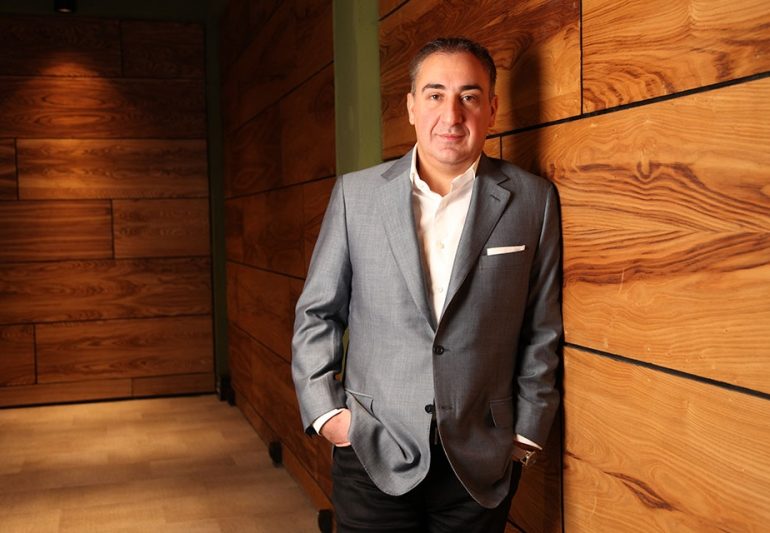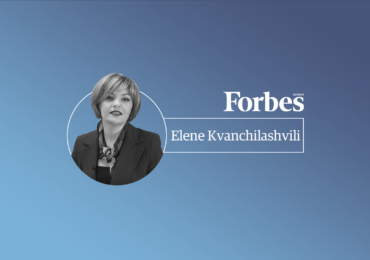Nika Gilauri, the former PM of Georgia, resigned from government at the age of just 39. Now he leads Reformatics, a global company which he refers to as The “Smallest Global Company in the World”. However, in just five years, his boutique advisory firm has developed an impressive portfolio by working with more than 20 governments on three different continents. The former prime minister turned entrepreneur has even penned his own book detailing the country’s many reforms entitled ‘Practical Economics’.
What does the former Prime Minister of Georgia have to offer the leadership within the developing world through his advisory firm Reformatics? Well, he offers exactly what he has done in practice with his own team – designing formulas and strategies for rapid economic growth, as well as innovative approaches to public policy.
It is precisely this hands-on approach, practical know-how of governance, reform and internationally-recognized best practices that spins simple advisory services into new generation consultancy: Reformatics turns client ideas into actions, and objectives into results. When consulting governments, Reformatics assists clients to right-size bureaucracy, create a favorable business environment and make public service delivery fast and citizen-centric.
In short, Reformatics exports Georgia’s reforms to the developing world and advertises Georgia globally.
The founder of Reformatics is Georgia’s former Prime Minister Nika Gilauri. He leads his boutique advisory firm on issues related to economic reform, the business sector and governance, together with his former chief advisers Tamara Kovziridze and Vakhtang Lejava.
Despite the fact that Gilauri spends what seems like the majority of his time on airplanes, which whisk him to places all around the world that are in need of reform, the former Prime Minister of Georgia still found time to sit down with Forbes Georgia for a one-on-one interview.
We agree to meet at the Iota Hotel. Mr. Gilauri walks with a spring in his step and a smile on his face. He greets me with a firm hand-shake, and the interview begins.
Let’s start from the very beginning. What makes Georgian reforms so relevant to the rest of the world?
The main reason is due to the economic shift that is happening now – I call it the reshuffle. This economic reshuffle is caused by a few different things. One reason is the decrease in oil prices, but the main reason is still technological changes. These types of economic reshuffles have been happening in the world every thirty to fifty years. For example, the breakdown of the Soviet Union was a major reshuffle –a reshuffle of power, a reshuffle of the economy and a reshuffle of politics. Today, the world is at a stage where we are facing another economic reshuffle. It is an interesting time.
This “reshuffle” has its winners and losers I assume?
Every case like this has its own winners and losers. Right now we are in a situation where technological change is becoming the new trend. Because of that, we are seeing more and more investment being funneled into the developed world rather than into the developing world. Five to ten years ago, we would see investor money flowing towards places like Georgia and countries in the post-Soviet space and Eastern Europe. This was due to low taxes and low labor costs. But today this is not enough. Technologies are becoming so profitable that it is worth it for investors to invest in places like California for example, which has one of the most expensive real estate’s markets, with some of the most highly paid, expensive employees. But places like California also have higher prospects for developing a product that will make big money.
This trend will continue, which means on the one hand, there is a very large demand for investment, and on the other, there is much higher competition among developing countries. This leads us to the fact that these governments need to perform. They need to sell their economies to investors in order to attract them. Plus, they need to create an environment that makes it easier to do business.
Yes, but if you are talking about technology and the large role technology plays, what then does Reformatics offer its clients? What are some of the reforms that could outweigh this lack of technology in the developing world?
Good question. The role of Reformatics is threefold in this situation. First, what we tell governments in different countries is that FDI is an absolute must in this situation –not only because of the funds coming into the country and the creation of jobs, but because of technological transfer. Second, these developing countries, and we are talking about most of the post-Soviet Union again, large portions of Asia, the Arab world, Africa and much of Eastern Europe – are not developing technologies. Rather they are consumers of technology. If they want to have the know-how and technological transfer, they need to attract FDI. Let me give you a very simple example. Imagine Tesla investing in Georgia, or in Kazakhstan, or in any other country in the region. What happens is that they transfer their technology to your country. They teach your population this technology, which becomes a new trend. And the only way to do that is through FDI and to create a business environment in your country that is attractive to investors like Tesla or any other large investor. Lastly, how are we helping? We are helping to change the rules, regulations and laws of the country into a business-attracting, investor-attracting environment. We look at everything from an investor’s point-of-view, which is a very difficult job by the way. To be frank, most governments have some kind of problem doing that, and this is where we come in. Reformatics has a very small niche, but a very interesting niche nonetheless.
A niche in exporting Georgian reforms?
Exactly. We help governments simplify rules and regulations in order to create a better business environment. We also help them create financing and fiscal policy formulas so their countries become attractive to investors.
Do you have any success stories you can share with us?
The partial problem with our job is that in some cases we have confidentiality clauses. For example we had great success stories in few countries – one of the largest economy in Africa, one of the countries in Middle East and in Eastern Europe but cannot share the details as this is part of the agreement. But in many cases we don’t. One of the success stories that I want to share is the story of Kazakhstan. We have been working there for the past 3-4 years. It was during the period when oil prices were plummeting. Kazakhstan is one of the world’s largest oil exporters, so they decided to diversify their economy from oil. The political decision was made to try to grow a nonoil economy as much as possible.
In an effort to get away from the oil curse?
Exactly. On the one hand, it’s [oil] a great thing because it does give you extra income, but being dependent on oil makes you dependent on oil prices, which can fluctuate wildly. Your economy can be severely damaged by a dip in oil prices. A political decision was made to diversify away from oil as much as possible. We were one of the consultants hired by the government of Kazakhstan to work with them on creating a business environment for small and medium-size enterprises. We came in to conduct the so-called ease of doing business reforms: to identify reforms which would increase Kazakhstan’s standing in the annual Ease of Doing Business Index published by the World Bank. After the first year, we achieved quite a good result, as Kazakhstan jumped from 77th place to 41st and then to 35th in the rankings. Our role is small in their success, but I believe that we’ve helped to create this momentum for Kazakhstan. For Georgia we managed to get the country into top 10 of this report few years ago. I am very happy to see that in 2017 as well Georgia managed to do the same – it is a great achievement. We hope that we will be successful in doing the same with our partners.
Currently, your partners are solely governments. Do you see interest from private sector players as well?
As of today, most our clients are governments. However, we see some interest from the private sector as well, mostly to advise them on the macroeconomic policies of various countries. But at this stage our main clients remain governments. We have been working with more than 20 countries in Africa, Eastern and Central Europe and in various Gulf countries. We also had one small engagement in Latin America. Our biggest goal is to start attracting governments in Latin America, but so far we have only had one engagement.
How long have you actively been involved in this?
Since I left government five years ago.
And was that the very first idea you had after leaving politics?
Yes, definitely. I mean, when you leave government you want to do something new. Some may not believe this but I left top government position with negative balance on my account. Few months in Partnership Fund helped but when out of the public service I had to start new life and new business – the thing that I knew best was managing economic reforms and it appeared that there was demand for it. I was 39 years-old and I decided that creating my own company would be a good idea. I wanted to try to do what I had experienced myself, which was leading, managing, innovating… Reformatics has this very unique niche that all of our employees are practitioners of. We are not your average consultants with just theoretical knowledge or an academic background. All of us come with practical backgrounds.
What is the market for advisory activities in general? Is competition high in this regard, and what are some of the competitive advantages of Reformatics?
That’s the niche. Believe it or not, there is huge competition in this market worldwide. We are a relatively small company –and there are global companies all over the world. But our niche is that we’ve done these reforms ourselves. We’ve made mistakes ourselves. We’ve seen success stories and we reformed the reforms ourselves. We understand governments because we’ve been in their positions. And when I talk with the prime minister of any country, it’s not simply a consultant talking to a client, it’s a former prime minister talking to a prime minister. And for them it’s a different language and a different understanding. That’s what makes us kind of unique. There are not many former government employees who have created their own consultancy companies and who are actually working with other governments right now. Mostly they are academics, or theoreticians who enter this business and try to sell their theories. We don’t sell theories. We are selling practical experience.
What you are saying is that it’s actually possible to learn based on others’ mistakes?
Yes, this is the whole point. We are advising on implementation. That’s the key to what we are doing – the implementation of reforms. What most consultants do is they come in and they create for you a large report detailing what needs to be done – a so-called SWOT analysis. They create these amazingly well-formulated guidelines of what the problems are and what would be good to do. Then they leave. And that’s it. You are left with this huge document you don’t know what to do with. This is where we come in. We don’t only give you advice on what needs to be done, we are working with you on a daily basis showing you how to implement it.
So to actually achieve it…
Yes. This is what I call new generation consultancy. We say that we identify the weaknesses, we identify what the problems are and we work with you on a daily basis to help solve those problems.
Which probably requires a lot of energy, as well as a lot of time in the air. That’s absolutely correct. I calculated a few months back and it turns out that I flew more than it was allowed for a Turkish Airlines pilot! I spend a large part of my life on planes.
I understand that you have some kind of a business relationship with McKinsey. Can you share a little bit about that with us?
I cannot disclose the company name but, yes we have been working with one of the largest management consultancy firm for the last few years, they are one of the largest consultancy companies in the world. It’s been very interesting because they are on the ground in many countries that we haven’t been able to penetrate yet – a few countries in Africa, for example, where we don’t know anybody. It is a company that has a very strong on-the-ground presence throughout the world. It’s a worldwide brand and we are working quite closely with them. We had some success stories not only, with one of the largest economies in Africa, but also in the Arab world. We are advising one of the largest countries in the Arab world, and we are seeing useful steps being made in the development of anon-oil economy there. It is very interesting work being engaged with governments of transition countries who really want to develop their economies and who really want to create a better business environment and better fiscal policy…
Is the political will for reform always present, or are there some governments who resist change?
We don’t work with those countries, as we don’t want to waste time. Every engagement that we have needs to lead somewhere. We don’t have contracts just for the sake of contracts. We want success stories. We want governments who have the political will to make reforms, to change rules, to create whatever is needed at that moment for that particular country. If there is no political will, there is nothing any consultancy company can achieve.
And it probably works in reverse: if there are success stories, the demand for this kind of political will may rise?
That’s the formula. The more you work with governments who have the political will, the more success stories you have and then the more you sell Georgian reforms around the world. And as it appears it is very much in demand as well – the book was published by one of the top science publishers Palrgave McMillan and according to them it is one of their bestsellers of this year as well as most downloadable title – more than 40,000 downloads.
Talking about Georgian reforms, you didn’t write any memoirs when you retired from government. Instead you wrote a book about Georgian reforms. Can you tell us more about that?
I decided that it would be good to have some kind of summary of the reforms we undertook, and the main reason for that was simple. Every time I went anywhere, people would always ask if there is something written about these reforms. And I always wanted to show them something. But it appeared that there was nothing there.
I just remember that World Bank book that highlighted the best practices of some of Georgia’s reforms…
Yes, World Bank wrote a book describing some of the Georgian reforms, there were some short articles from the IMF and a few other international financial institutions. But not any comprehensive book or any extensive material detailing Georgian reforms that my clients or potential clients could refer to. So I decided, why not write a book, which in turn became my new business card. The book is definitely not a memoir, but it does have some personal stories in it. For example, how I was appointed as the minister of energy, or how we dealt with some of the problems that followed Russian invasion in 2008.However, 90 percent of the book is about reforms and how these types of deep and comprehensive reforms were managed in practice.
The book is called ‘Practical Economics’?
I decided to call it that because I realized that despite having studied economics and different schools [of economics] in my youth, when I became PM, I realized that none of those schools, none of those economic theories actually work in practice. And that’s true. What works in practice is actually practical economics – when you actually make decisions based on that particular moment. That’s it. You also realize that you may make mistakes, and you are willing to take that step and reform the reforms. In the end, you come up with something good: a good formula that works for a particular sector, like we did in energy, customs, taxes and so on. The achievement comes from solving a particular problem in that particular country in that particular situation. And it has nothing to do with any theory. It’s all about practical economics. These kinds of practical formulas are very much needed in various countries around the world.
And are they still working in this era of economic reshuffling as you call it?
Yes.
Why?
Because I believe that if the formula is correct, it is self-developing for that particular sector. I also believe that we designed the kind of reforms that were good at attracting investment then and will be good for attracting investment in the future as well. These were reforms that had the correct self-developing formulas, and these formulas are needed today not only in Georgia, but all over the developing world. That’s why they are so popular and still work today.
So what does the future hold for Reformatics?
We call ourselves the smallest global company, which is true. When we started there were only three of us – myself, Vato Lejava and Tamar Kovziridze. Today we have up to 30 people, Including part-time advisors working on various projects in different countries. Our goal is to become truly global. Right now we are represented on only three continents. We still have to do some serious work in Latin and Caribbean, and we still haven’t explored the Far East. Our closest goal is definitely to have more Georgian reforms exported to a larger part of the developing world.
What about your personal plans, do you have plans for Georgia?
I do try to attract investment in Georgia. I have a few projects within the energy sector, which is my favorite. I try to draw investments in hydropower plant construction in Georgia – so yes, I do have plans here. In addition, I’m trying to launch the first truly Georgian social media app called Trulayla. Many different countries have developed local apps, but there has been no Georgian social media yet, so I decided to develop the first one.
INTERRVIEW IN GEORGIAN.
VIDEO:
————————————–
Review of Practical Economics:
Economic Transformation and Government Reform in Georgia 2004- 2012 / published by Palgrave Macmillan
If you are politician, civil servant, consultant or just an active citizen interested in how governments function and how they can be transformed, this book by Nika Gilauri – Practical Economics – is for you.
The language of the book is easy, descriptive, including some personal stories and full of selfawareness of hands-on practical experience in initiating and implementing reforms.
Nika Gilauri served as Minister of Energy (2004-2007), Minister of Finance (2007-2009) and Prime Minister (2009-2012) of Georgia. The book provides a detailed analysis of the reforms implemented in Georgia during this period.
In this book you can find all the reasons why the Georgian case is relevant for countries in transition and how Georgia managed a breakthrough in the fight against corruption, rightsizing of government, creation of business-friendly environment, tax and customs reform, privatization of state-owned companies, energy sector reforms, and smart spending approaches applied to welfare, healthcare, education and procurement.
Let’s see what some prominent readers have to say:
Simeon Djankov, former Vice Prime Minister and Minister of Finance of Bulgaria: “I witnessed the tremendous wave of reforms undertaken in Georgia after the Rose Revolution, propelling the country to the top reformer globally within just a few years. This book tells brilliantly the story of how these changes took place.”
David Fine, Senior Partner at McKinsey & Company: “Compelling… Mr. Gilauri offers a highly professional account of the rapid economic turnaround and growth story of Georgia, which certainly can be tailored in many countries worldwide.”
Karim Massimov, Prime Minister of the Republic of Kazakhstan: “A must-read for anyone craving to establish powerful origins for rapid and aggressive reforms in their homeland …”
Francis Fukuyama, Senior Fellow and Mosbacher Director, Stanford University, USA: “Georgia has been one of the few remarkable success stories of countries fighting systemic corruption and government dysfunction. Former Prime Minister – Nika Gilauri presents a fascinating account of how this came about

















